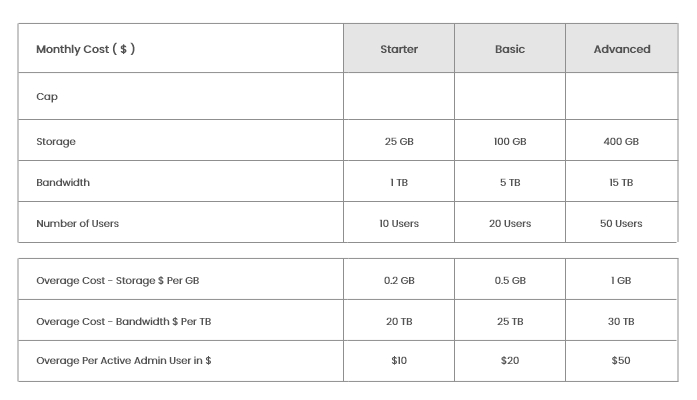



Everything You Need to Know About Google Bard
Understanding Bard and how it might integrate with search is critical for anyone involved in SEO or online publishing
Google's response to ChatGPT, Bard, has just been released, and users are getting to know it to see how it compares to OpenAI's artificial intelligence-powered chatbot.
There are no algorithms named Bard, so the name 'Bard' is purely marketing-driven, but we do know that the chatbot is powered by LaMDA.
Here is everything we know about Bard so far, as well as some interesting research that may provide insight into the types of algorithms that could power Bard.
What Exactly Is Google Bard?
Bard is a beta Google chatbot powered by the LaMDA large language model.
It is a generative AI that accepts prompts and performs text-based tasks such as answering questions, summarising information, and creating various types of content.
Bard also helps with topic exploration by summarising information found on the internet and providing links to websites with more information.
Why Did Google Unveil Bard?
After the wildly successful launch of OpenAI's ChatGPT, which created the perception that Google was falling behind technologically, Google released Bard.
ChatGPT was viewed as a game-changing technology that had the potential to upend the search industry and shift the balance of power away from Google search and the lucrative search advertising business.
The New York Times reported on December 21, 2022, three weeks after the launch of ChatGPT, that Google had declared a "code red" to quickly define its response to the threat posed to its business model.
Google announced the launch of Bard on February 6, 2023, 47 days after the code red strategy change.
What Went Wrong With Google Bard?
The Bard announcement was a colossal flop because the demo intended to showcase Google's chatbot AI contained a factual error.
Google's AI's inaccuracy turned what was supposed to be a triumphant return to form into a humiliating pie in the face.
Google's shares then lost a hundred billion dollars in market value in a single day, indicating a loss of faith in Google's ability to navigate the looming AI era.
How Does Google Bard Operate?
A "lightweight" version of LaMDA powers Bard.
LaMDA is a large language model trained on datasets derived from public discourse and web data.
There are two critical aspects of the training described in the accompanying research paper
- A. Security: The model achieves a level of security by being tuned with data annotated by crowd workers.
- B. Groundedness: LaMDA bases its claims on external knowledge sources (through information retrieval, which is search).
According to the LaMDA research paper:
"...factual grounding entails allowing the model to consult external knowledge sources like an information retrieval system, a language translator, and a calculator."
We use a groundedness metric to quantify factuality, and we find that our approach allows the model to generate responses grounded in known sources rather than responses that merely sound plausible."
Google evaluated the LaMDA outputs using three metrics:
- Sensibility: A measure of whether or not an answer makes sense.
- Specificity: Determines whether the answer is generic/vague or contextually specific.
- Interestingness: This metric assesses whether LaMDA's responses are insightful or arouse curiosity.
All three metrics were evaluated by crowdsourced raters, and the results were fed back into the machine to help it improve further.
According to the LaMDA research paper, crowdsourced reviews and the system's ability to fact-check with a search engine were useful techniques.
Google researchers stated:
"We have discovered that crowd-sourced data is an effective tool for driving significant additional gains."
We also discover that using external APIs (such as an information retrieval system) provides a path to significantly improving groundedness, which we define as "the extent to which a generated response contains claims that can be referenced and checked against a known source."
How Will Google Implement Bard In Search?
Bard's future is currently envisioned as a search feature.
Google's announcement in February was vague about how Bard would be implemented.
The key information was buried in a single paragraph near the end of Bard's blog announcement, where it was described as an AI feature in search.
Because of this ambiguity, it was assumed that Bard would be integrated into the search, which was never the case.
According to Google's February 2023 announcement of Bard, AI features will be integrated into the search at some point:
"Soon, you'll see AI-powered Search features that distil complex information and multiple perspectives into easy-to-digest formats, so you can quickly understand the big picture and learn more from the web: whether that's seeking out additional perspectives, such as blogs from people who play both piano and guitar or going deeper on a related topic, such as steps to get started as a beginner."
These new AI features will be available on Google Search very soon."
It's clear that Bard isn't looking. Rather, it is intended to be a supplement to search rather than a replacement for search.
What Exactly Is A Search Feature?
A feature is similar to Google's Knowledge Panel, which provides information about famous people, places, and things.
Google's "How Search Works" feature page explains:
"Google's search features ensure that you get the right information at the right time in the most useful format for your query."
It can be a webpage or real-world information such as a map or inventory at a local store."
Employees at Google questioned the use of Bard in search in an internal meeting (as reported by CNBC).
According to one employee, large language models such as ChatGPT and Bard are not fact-based sources of information.
The Google employee inquired:
"Why do we believe search, which is fundamentally about finding true information, should be the big first application?"
The product lead for Google Bard, Jack Krawczyk, responded:
"I just want to make one thing clear: Bard is not a search."
Elizabeth Reid, Google's Vice President of Engineering for Search, reiterated at the same internal event that Bard is not search.
She stated:
"Bard is truly distinct from search..."
We can safely conclude that Bard is not a new version of Google search. It is a characteristic.
Bard Is A Topic Exploration Method That Is Interactive
Google's announcement of Bard made it clear that it is not a search engine. This means that, while search returns links to answers, Bard assists users in researching knowledge.
According to the announcement:
"When people think of Google, they often think of quick factual answers, such as 'how many keys does a piano have?'"
People are increasingly turning to Google for deeper insights and understanding, such as 'Is the piano or guitar easier to learn, and how much practice does each require?'
It can take a lot of effort to figure out what you really need to know about a topic like this, and people often want to explore a diverse range of opinions or perspectives."
It may be useful to consider Bard as an interactive method for gaining knowledge about specific topics.
Web Information Samples from Bard
Large language models have the disadvantage of mimicking answers, which can lead to factual errors.
According to the researchers who created LaMDA, approaches such as increasing the model's size can help it gain more factual information.
However, they noted that this approach fails in areas where facts are constantly changing over time, a phenomenon known as the "temporal generalization problem."
A static language model cannot train for freshness in the sense of timely information.
LaMDA pursued the solution of querying information retrieval systems. LaMDA checks search results because an information retrieval system is a search engine.
This LaMDA feature appears to be a Bard feature.
According to the Google Bard announcement:
"Bard aspires to bring together the breadth of the world's knowledge with the power, intelligence, and creativity of our large language models."
It uses web information to provide fresh, high-quality responses."
The toolset is used by LaMDA and (possibly) Bard to accomplish this (TS).
Understanding Bard is beneficial to anyone who publishes on the web or practices SEO because knowing the limits of what is possible and the future of what can be achieved is beneficial.
To keep up with the Google Update cycle for its search engine, Hocalwire CMS features a carefully curated collection of settings that are automatically updated. We provide mobile SEO implementation as part of our standard packages as a service to our clients. To learn how Hocalwire may assist in transforming your current codebase into a beautiful mobile experience, Schedule a Demo right away.

